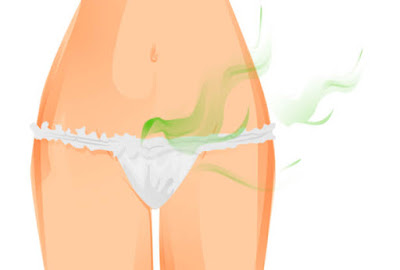Vaginal detox, vaginal douche or use of intimate deodorants, practices to stay so called clean and fresh are many. Yet, they are not without risks.
Indeed, most of these methods will create imbalances of the vaginal flora and irritate the mucous membranes.
Intimate hygiene: practices to avoid
If good personal hygiene is essential to feel good and avoid infections, it is not necessary to practice excessive hygiene. Indeed, certain gestures can have harmful consequences on the balance of your vaginal flora.
The vaginal shower
First practice to ban urgently: the vaginal shower! Cleaning the inside of her vagina using the shower head or an enema pear is useless and even strongly inadvisable.
Indeed, the vaginal flora is composed of lactobacilli - that is to say naturally occurring bacteria in the vagina, which prevent other bacteria from developing. It's a bit like a natural cleaning system. By practicing the vaginal shower, you risk to damage these lactobacilli and to unbalance your vaginal flora.
Result: infections, droughts and irritations may appear.
Daily wear of panty protectors
If worn daily, panty liners can cause irritation, allergies or fungal infections.
This is a bad habit you can certainly do without. If this is not the case, look for the days when you have the most vaginal discharge (often in the middle of the cycle and then just before the menses) to wear only those days.
Choose washable pads that are better for your health and the environment.
The detox of the vagina
Vaginal detox has more and more followers, especially in the United States. The principle ? Take steam baths from decoction of herbs to offer a health cure to our vagina.
Celebrated by American celebrities like Gwyneth Paltrow, the detox would eliminate toxins but also reduce painful periods or fight against urinary tract infections. However, this practice is not recommended at all: the vagina does not need to be detoxified since it is able to clean itself.
Another, more dangerous, method is to insert sachets (yes bags!) Of medicinal herbs into the vagina. In addition to irritating your vagina, the risk is to develop the famous syndrome of toxic shock.
So the detox of the vagina is no!
The use of intimate deodorants
As incredible as it is, it is possible to find in-store deodorants intimate. Even without alcohol and without perfume, these products should be avoided because they can, in addition to unbalance your vaginal flora, trigger irritation, burns or irritation.
In case of persistent odors, it is better to consult a gynecologist or a midwife as this may be a sign of an infection.
Wash with a washcloth or shower flower
The washcloths and the shower flowers are real nests with microbes! To wash, choose a dermatological bread, ie a soap-free soap or an intimate cleansing gel and apply it with your hands (provided you are sure that they are clean, of course).
The wash will be so much softer and healthier! Shower gels are to be avoided, all like Marseille soap, too aggressive for the intimate area. If you do not have any particular problems or infections, one wash a day is more than enough. By washing too much, you risk weakening your mucous membranes.
Use natural products without any precaution
Attention also to natural products: lemon, essential oils, bicarbonate ... Although they have many benefits, their effectiveness in treating problems related to the vagina has never been demonstrated.
Lemon is, for its part, much too acidic: it may unbalance the pH of your vaginal flora and cause burns.
For your intimate hygiene, better so be simple: a soap, water and nothing else! Your vagina is not dirty and does not need excessive hygiene. However, if you suffer from itching or burning, do not hesitate to consult quickly.
















0 comments:
Post a Comment